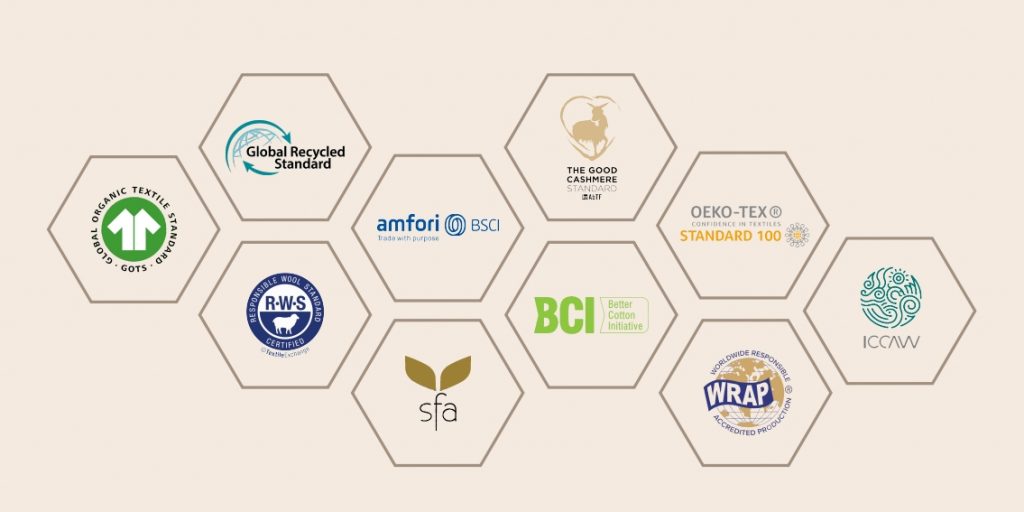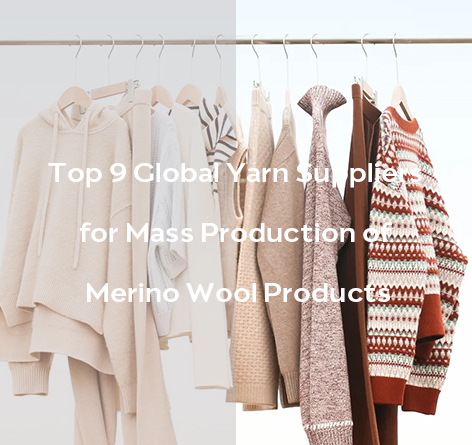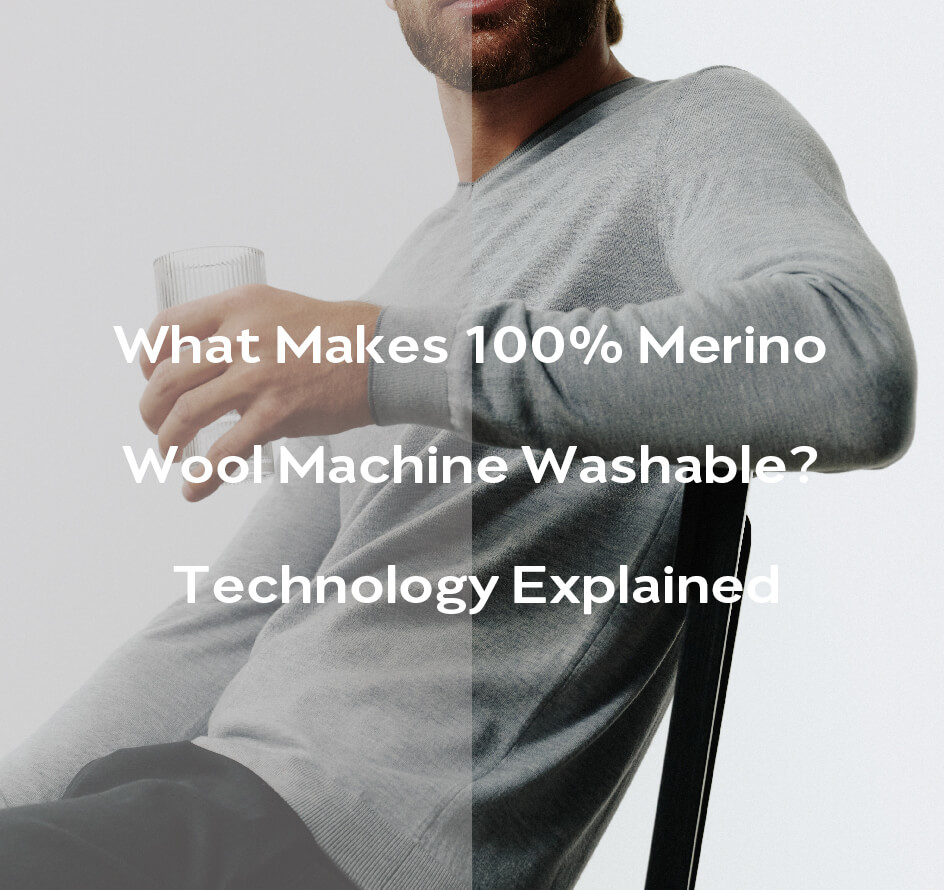Selecting a knitwear supplier is not merely finding the source of products; it is building an alliance that will influence every move in your supply chain. From enhancing product quality to ensuring timely deliveries and providing competitive pricing, all these are important factors to help keep the success of your business in place. On the other hand, a wrong supplier can cause quality issues, deadlines will be missed, and costs will be added, which will then drive into your bottom line (and customer satisfaction).
This blog covers the five most typical mistakes companies commit when selecting a knitwear supplier. It means that by being aware of and not making these mistakes, your choice will support the goals of your business as well as uphold levels of quality and reliability.
Ⅰ. Not Thoroughly Researching Knitwear Supplier Credentials
Selecting the right knitwear supplier goes well beyond the samples and pricing. One of the most important steps in doing this is by researching and verifying that the credentials of these potential knitwear suppliers are actually in place. Failure to do this can result in poor product quality, compliance issues as well as supply chain disruptions.

1. Supplier Credentials Matter:
- Certifications: For knitwear suppliers, certifications like BSCI (Business Social Compliance Initiative) and ISO 9001 are essential.
BSCI Certification: This certification is aimed at improving working conditions within global supply chains to make sure that suppliers are abiding by ethical labor practices. For knitwear suppliers, this is pertinent because they have to comply with social and environmental standards.
ISO 9001 Certification: This certification pertains to quality management systems, ensuring that suppliers maintain consistent product quality and process efficiency.
- Company History and Reputation: Investigate the supplier’s history and reputation to gauge their reliability and performance. Look for feedback from other businesses and check industry reviews.
2. How to Verify Supplier Credentials
- Request Documentation: Ask potential knitwear suppliers to provide copies of their certifications and audit reports. This proves that they adhere to the required quality and ethical standards.
- Conduct Third-Party Audits: You have to set up a third-party audit so as to assure an independent verification of the supplier’s compliance with BSCI standards. This will help reveal any issues — in the compliance of the supplier — which may not be so evident from the documentation alone.
- Check References and Reviews: Other businesses that have worked with the knitwear supplier can be contacted directly. Experiences shared will reflect the true picture in terms of reliability and quality of service by the supplier.
- Use Industry Databases: You can confirm the credentials of suppliers using industry information systems. Alibaba Supplier Verification is one way to confirm whether or not a particular supplier is legitimate. This helps verify suppliers listed on the platform.
3. Potential Risks of Inadequate Research
- Quality Issues: Without proper verification, you risk sourcing knitwear that does not fit your quality standards, which could have otherwise been returned at the cost of your dissatisfaction, negative reviews, and potential harm to brand reputation through social media.
- Regulatory Non-Compliance: Legal issues and fines may be realized due to knitwear suppliers not adhering to necessary standards—especially if you are importing goods into your country.
- Operational Disruptions: Unsuitable suppliers can lead to disruptions in your supply chain by causing delays as well as inconsistency in product availability.
Ⅱ. Focusing Solely on Price
In selecting a knitwear supplier, one feels rather inclined to put the question of price in the first place. But there are extreme problems entailed by fixing our minds purely on cost, for these problems do not only affect the quality of your goods but also reach out and harm the efficiency of your business as well as its name. While price is crucial, it cannot be the sole determinant in this or else any other matter.

1. Why Price Alone Can Be Misleading
Price is considered a simple metric, but the following makes it misleading:
- Hidden Costs: Cheaper prices might bring along hidden costs that are not visible at the moment. This could include higher defect rates, low-quality materials, or even charges for shipping and handling. Understanding what all will cost aids in evaluating how much it will truly cost to work with a supplier.
- Quality Trade-Offs: Suppliers that charge significantly less may compromise on quality. This can lead to products that do not meet your standards, which can lead to returns, customer dissatisfaction, and potential damage to your brand.
Knowing more about Price vs. Quality will make you clear about the real cost of sweater: The Cost of Custom Knit Sweaters: A Breakdown of Pricing Factors and How to Get the Best Value
- Long-Term Costs: Although a lower initial price is attractive, it can be unrealistic and cause higher long-term costs based on replacements, repairs, or quality problems. The assessment of supplier pricing in terms of long-term implications is very important for the sustainable operations of the business.
2. Evaluating the Total Cost of Ownership
To make an informed decision, consider the entire cost of ownership, which includes a purchase price plus other costs.
- Material Quality Assess the quality of the materials employed by the knitwear supplier. More effective materials often lead to a longer product lifespan and a lower number of defects.
5 Basic Tips for Custom Knitwear Material Selection – Tips on evaluating the quality of textile materials.
- Shipping and Handling: Incorporate the costs of shipment, customs duties, and handling. These extra expenditures have a significant impact on the final cost.
- The potential effects of quality issues: Think about the potential costs associated with quality issues, such as returns, rework, and customer complaints. A supplier that charges higher prices but provides superior quality products or services may offer a more significant long-term value.
3. Quality vs. Price Trade-Off
Discovering the proper ratio between price and quality is rumit by several factors:
- Supplier Reputation: Investigate the knitwear supplier’s reputation for quality and consistency. A respected supplier may charge higher prices but provide a more complete value through consistent quality and service.
- Evaluation of Suppliant Reputation – Ideas on how to evaluate the reputation of suppliers.
- long-term relationships: consider the benefits of a long-term association with a supplier that offers a slightly higher price, but who consistently provides quality products and dependable service.
While price is important in the selection of a knitwear supplier, it should not be the sole concern. A comprehensive approach involves partnering with a supplier that satisfies your quality requirements and supports your company’s goals.
Ⅲ. Ignoring Quality Assurance Processes
In the world of knitwear, quality assurance processes are crucial to making sure the products you receive are what you expect and are in line with industry standards. Ignoring these processes can lead to significant issues, including product failure, inconsistent quality, and a damaged brand reputation. Also, poor quality can lead to additional expenses associated with returns, re-work, and lost sales. It’s crucial that your knitwear supplier has effective quality assurance mechanisms in place that will maintain high standards and provide dependable products to your customers.
1. Why Quality Assurance Matters
Quality assurance processes facilitate the consistent production of quality products and prevent imperfections. They encompass a series of procedures and checks during the production process that ensure that products achieve the desired standards.
- Consistency and Reliability: The processes of QA ensure that each batch of fabric meets the same standards of quality; this reduces variation and flaws.
- Standard: Adherence to quality standards promotes compliance with regulations and certifications in the industry, such as BSCI or ISO 9001.
2. Key Quality Assurance Measures
To ensure that your fabricator maintains quality, consider the following questions about quality:
- Fabric Testing: Review the varieties of tests conducted on fabric used in knitwear. This can involve tests that assess the durability, colorfastness, and shrinking properties.
- protocols: Understanding the different stages of production at which the supplier inspects the product. This should include initial, ongoing, and final audits that will catch flaws early on.
- Quality Control Documentation: Request documentation regarding the supplier’s quality control processes and any pertinent licenses they have. This documentation should describe their method of managing and enhancing quality.
3. Requesting and Testing Samples

Before committing to a supplier, it’s important to request samples and thoroughly evaluate them to make sure they meet your quality requirements:
- Request Sample: Ask for samples of the knittedwear to assess the material, design, and overall value. This facilitates the assessment of whether or not the supplier’s products correspond with your preferences.
- Conduct Tests: Run tests on the samples that assess their durability, color, and fit. This will help you understand the quality of the product in advance of placing a large order.
More information about quality that will be of help: Quality Counts: Choosing the Perfect Knitted Sweater Supplier
Ⅳ. Overlooking Communication and Customer Service
Effective communication and exceptional customer service are pivotal in the successful development of a productive knitwear supplier relationship. When companies only focus on price and quality, they often disregard the importance of communicative clarity and responsiveness, which can lead to misinterpretations, delays, and dissatisfaction. ensuring that your knitwear manufacturer is exceptional in these areas is crucial to maintaining a smooth and efficient supply chain.
1. Essing Communication Practices
- Response Time: The speed with which the supplier responds to questions and issues. Responses that are timely demonstrate a supplier’s devotion to customer service and effectiveness.
- Clarity of Communication: Ensure that the supplier communicates in a clear manner and provides specific information regarding the product’s specifications, delivery dates, and potential problems.
- SupportChannels: Review the various help channels accessible, such as email, phone, and chat. A supplier that has multiple modes of support is typically better suited to address your concerns in an effective manner.
2. Essing Customer Service
- Customer Feedback: Look for reviews and narratives from other clients regarding the supplier’s customer service. Positive feedback can be indicative of a supplier’s dependability and desire to please customers.
- Service Agreements: Review any service level agreements (SLAs) or contracts that outline the knitwear supplier’s commitments to service quality, response times, and issue resolution.
- After-Sales Support: Assess the level of after-sales support offered by the supplier, including handling of defective products, exchanges due to quality issues, and warranty issues.
3. Building a Strong Working Relationship
Maintain regular communication with your supplier to stay informed about production progress, potential issues, and any changes in requirements. Establish a feedback loop to share your experiences and expectations with the supplier, allowing for continuous improvement in the relationship.
Ⅴ. Failure to Consider Sustainability and Ethical Practices
Today, sustainability and ethical behavior are more significant than ever before. Ignoring these factors when choosing a knitwear provider can both negatively affect your brand’s reputation and have a direct effect on your business via compliance and consumer preference. As consumers become more aware of environmental and ethical issues, being in agreement with suppliers that focus on sustainability and ethical behavior is essential to long-term success.
In addition to clearly communicating your commitment to sustainability and ethics to potential partners, you should also pay attention to:
1. Certifications
Ensure that the fabric is certified as organic or ethical, respectively. These certifications demonstrate a supplier’s compliance with recognized regulations.
2. Executing Sustainable Practices
- Material sourcing: Select suppliers that utilize environmentally friendly materials, such as organic cotton or reusable fibers. This decreases the environmental burden of your products.
- Waste Management: Review the supplier’s method of managing waste during production. Effective waste management methods can minimize environmental damage.
- Energy Consumption: Evaluate the supplier’s energy usage and attempts to utilize alternative energy sources. Sustainable energy methods reduce the carbon footprint.

Conclusion
Selecting the appropriate knitwear provider is pivotal in ensuring your products achieve high standards and correspond with your business objectives. By avoiding common errors like failing to thoroughly research the credentials of suppliers, focusing solely on price, ignoring quality control processes, disregarding communication and customer service, and neglecting sustainability and ethical behavior, you can create a powerful and dependable supply chain.
Considering these factors in conjunction with your brand’s values and operational requirements will assist you in partnering with suppliers who not only provide top-notch fabric but also support your brand’s values and operational needs. ensuring that your supplier concords with your quality goals, communication rules, and ethical principles is crucial to developing a successful and long-lasting business partnership.
If you want additional assistance in choosing the appropriate knitwear provider or want to discuss your specific concerns, connect with us. Our team is here to assist you in navigating the complexity of finding a supplier and ensuring you find a partner that meets your expectations and is superior to your competition.




